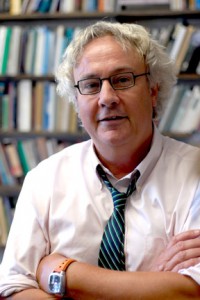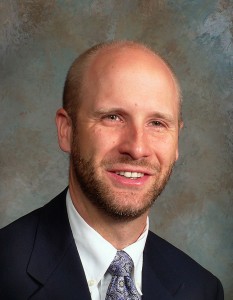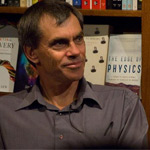 Charles Taliaferro, Chair of the Department of Philosophy, St. Olaf College is the senior co-editor of a six volume Encyclopedia of Philosophy of Religion involving 200 scholars from around the world for Wiley-Blackwell and Editor-in-Chief of Open Theology. We invited him to answer the question “What does philosophy of religion offer to the modern university?” as part of our “Philosophers of Religion on Philosophy of Religion” series.
Charles Taliaferro, Chair of the Department of Philosophy, St. Olaf College is the senior co-editor of a six volume Encyclopedia of Philosophy of Religion involving 200 scholars from around the world for Wiley-Blackwell and Editor-in-Chief of Open Theology. We invited him to answer the question “What does philosophy of religion offer to the modern university?” as part of our “Philosophers of Religion on Philosophy of Religion” series.
Philosophical reflection on matters that are religiously significant go back to the earliest recorded philosophy in the west and east. Philosophy of religion as it emerged in the modern era, beginning in the 17th century, was not a clearly separate sub-field until the twentieth century, but one can see hints of it in the German University system with the separation of theological and philosophical faculty. In the mid-17th century, however, when the term “philosophy of religion” first appears in English (coined by Ralph Cudworth), there emerged a tradition of practicing philosophy in which philosophical reflection on religion and religious practices and beliefs was seen to be of primary interest. It is from the school of thought known as Cambridge Platonism (which included Cudworth, Henry More, John Smith, and others) that we find the first sustained philosophy done in the English language with the coining of terms that are very much with us today, such as “theism,” “consciousness,” and various terms for naturalism, materialism and their counterparts. What the Cambridge Platonists focused upon in the 17th century is still very much a part of the current practice of philosophy of religion in the modern university. They were concerned with the following six areas which have a recognizable role in the practice of philosophy of religion today.
The evidence for and against theism and alternative non-theistic concepts of God. The Cambridge Platonists were all Christian theists, but they were very much energized by the challenges of modern science, atheism and secular naturalism, and religious diversity. They were the first philosophers in English to advance versions of the ontological, cosmological, teleological and moral theistic arguments, along with a theistic argument from religious experience. They also were the first in English to develop a theistic argument from consciousness: they contended that the emergence and existence of consciousness was more plausible given theism than naturalism.
Faith and Reason: They contended that religious faith should be guided by evidence and defended a robust natural and revealed theology.
To what extent does the modern science of Galileo, Newton, et. al., threaten our recognition of the reality of consciousness? Putting it another way, they were skeptical about what today we would call non-reductive materialism, and insisted on the reality and irreducibility of consciousness. As suggested above, they thought this was pivotal to a Christian, but even more broadly, theistic concept of the cosmos.
Freedom and determinism: They were very much alive to the importance of libertarian freedom as a condition for moral (and theological) responsibility. Although he is rarely acknowledged, Ralph Cudworth was the first philosopher in English to make a powerful case for libertarian free will.
Diversity and tolerance: The Cambridge Platonists pre-date Locke’s early work on tolerance. They articulated and defended tolerance during the English Civil Wars.
Religious ethics: The Cambridge Platonists were wary of appealing to God’s power or omnipotence as a way to adjudicate ethical disputes. They were very much on Socrates and Plato’s side in the Euthyphro: they believed that God loves and commands what is good and just, because it is good and just, rather than claiming that some act becomes good and just solely on the grounds that it is commanded by an omnipotent power.
There are areas in contemporary philosophy of religion which go beyond these six matters, both in terms of depth and scope. So, today, there is more detail in each of these areas, extensive work on anti-realism, on the worldview of non-Christian religions—which the Cambridge Platonists were concerned with but they lacked the detailed knowledge of, say, Buddhism, to do extensive philosophy of Buddhism—and so on. Contemporary feminists have been and should be interested in Anne Conway (1630-1679), More’s student and an important critic of More, Leibniz, and Descartes. The Cambridge Platonists had an important role in providing grounds in philosophical theology for opposing racism.
In summary, the history of philosophy of religion in universities in the modern era (since the emergence of modern science) have been robustly shaped by the pioneers of philosophy of religion, the Cambridge Platonists. This is a tradition that is alive today and explicitly endorsed by Douglas Hedley, Sarah Hutton, and a host of others. I offer an overview of the history of philosophy of religion which features the Cambridge Platonists in the book Evidence and Faith: Philosophy and Religion since the Seventeenth Century (Cambridge University Press) and offer a modern introduction to Cambridge Platonism for general, university-educated readers in The Golden Cord: A Short Book on the Sacred and Secular (University of Notre Dame Press).



